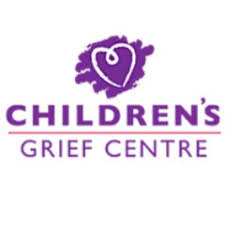The number of children being referred to the grief centre in Limerick has doubled this year, with Covid-19 having an impact on how children are coping with bereavement or the separation of their parents.
Director of the only children’s grief centre in the country, Sister Helen Culhane said the pandemic was taking its toll on children and families impacted by bereavement and loss or separation and divorce.

The centre, which was set up by Sr. Culhane in 2009, has helped 1,400 children to date by offering a listening service and providing a safe space for children to open up about their feelings and process traumatic events, such as the loss of a loved one or the separation of their parents.
Initially set up to serve the Limerick, Clare and Tipperary region, the service now takes referrals from Cork, Galway, Kildare and beyond.
Despite COVID-19 public health restrictions, the centre has managed to continue seeing children face-to-face and sees about 25 children a week. The pandemic has also led to a rise in referrals, which have doubled on last year.
“We now have 300 children on a waiting list. It has doubled; this time last year we had 149 children waiting,” Sr. Culhane said. “
COVID-19 had made the situation more difficult, Sr. Culhane said, explaining that the absence of a traditional wake and the support that this provides meant that many children didn’t get to say goodbye to loved ones who had passed away.
“In a lot of cases children have not been able to say goodbye to grandparents. In the whole grieving process if you don’t get to say goodbye, especially for children, you’re thinking that they are still alive,” Sr. Culhane said.
The pandemic also impacted on children living with parents who may have separated but continued to live together and came under greater pressure this year, she said.
Sr. Culhane became interested in the issue after working at Milford Hospice in Limerick for many years and noticing a gap in services for children. “If you have money, you can pay to go to see a psychologist or play therapist but most people don’t have that kind of money especially separated or bereaved families,” she explained. Parents can directly refer children, aged four to 18 years, to the centre. The listening service is free of charge but parents can make donations to support the centre’s work.
Sr. Culhane, a former social worker, experienced bereavement as a child when at the age of five she lost her brother and two years later her mother lost twins at birth. .
In Sr. Culhane’s experience, not dealing with bereavement or loss can have life-long consequences, while separation and divorce presented other challenges for children, who were often caught in the middle between parents. “Most children don’t need counselling or therapy but where there is a bereavement or separation they need someone outside of the family that will listen,” Sr. Culhane said, stressing that the service was confidential and child-centred.
While COVID-19 has led to an increase in referrals, it also impacted on the centre’s ability to fundraise this year. Sr. Culhane, however, said the pandemic would not hamper the centre’s ambitions to move to new premises.

Helen Culhane rsm
The centre, which has won numerous awards for its work, is hoping to begin work next year on refurbishing a new premises that was gifted by the Sisters of Mercy this year and renovation work is at an advanced stage of planning.
The listed stone building on O’Connell Avenue in Limerick city requires significant refurbishment work that is estimated to cost €3.5m. To date, just one tenth of that, about €350,000, has been raised through fundraising activities.
Sr. Culhane said it would be a “massive challenge” to reach the funding target but that the people of the midwest region had been very supportive to date and the centre would be redoubling its fundraising efforts in the year ahead.
More information about the Children’s Grief Centre here.
This article was first published in The Irish Examiner and was written by Maresa Fagan


